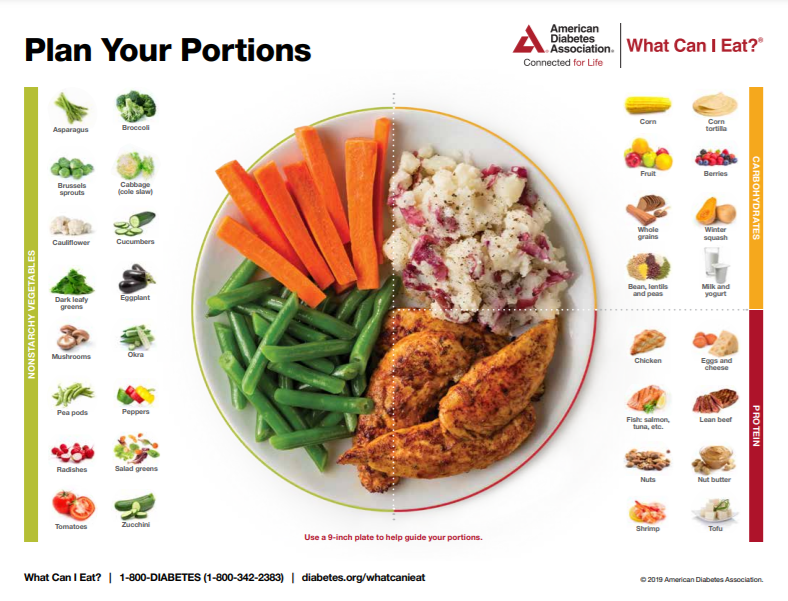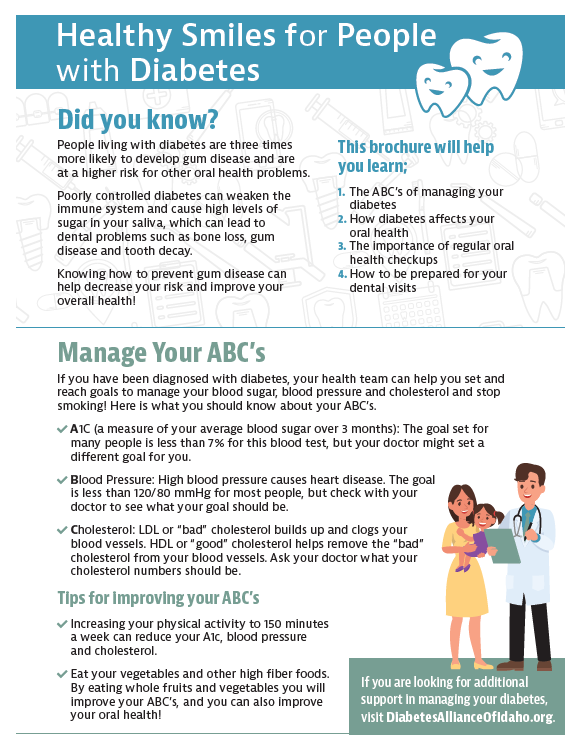
Daily Management
Nutrition
A great way to feel your best is by prioritizing the food you eat. By working with a registered dietitian nutritionist (RDN), individuals can create meal plans and learn more about managing their diabetes. Making smart and healthy dietary choices will help control blood sugar levels. For many, there is no “magic diet” when navigating diabetes. Everyone’s body responds differently to different foods, so it's all about finding what works best for you!
Another key to success for individuals with diabetes is understanding the important role carbohydrates (carbs) play. The body turns carbs into glucose, which directly impacts and our blood sugar levels, making it highly important to balance our carb consumption throughout the day. There are three main types of carbohydrates: starches, sugar and fiber. When it comes to choosing foods with carbs, the goal is to choose carbs that are nutrient-dense, which means they are rich in fiber, vitamins and minerals, and low in added sugars, sodium and unhealthy fats.
Another great tool to making healthy dietary choices is the Diabetes Plate Method provided by the American Diabetes Association.
Image Source: diabetes.org/whatcanieat
Medication Management
There are many different drugs that work to lower an individual’s blood sugar levels. For some, the use of a single medication may be enough, for others, a combination of medications may be prescribed by a doctor. For people living with type 1 diabetes, many rely on the use of insulin on a daily basis. For people living with type 2 diabetes, most individuals develop a treatment plan that consists of healthy eating, physical actives and the use of oral medications or insulin.
Physical Health
Aside from eating healthy and taking daily medications, it’s important to remember that exercise is key! Studies have shown that regular physical activity is an important part of managing diabetes and also aids in the prevention of diabetes. When an individual is active, the body’s cells become more sensitive to insulin, making insulin work more effectively. This leads to a number of benefits to your physical health including enhanced mood. There are many ways to incorporate exercise into your daily routine. Some examples include taking regular walks around the block, going for a run, taking the stairs instead of the elevator.
Mental Health
Individuals with diabetes are at higher risk for mental and emotional health issues. These include: diabetes distress, depression, anxiety and eating disorders. Creating a support group of family, friends, and healthcare providers can help in staying positive while managing diabetes. Healthcare professionals include but are not limited to counselors, therapists, psychiatrist and social workers.
Type 1 Diabetes Self-Care Manual
This manual is provided by the American Diabetes Association. Please visit their site for more information at https://www.diabetes.org/diabetes/type-1/type-1-self-care-manual.


